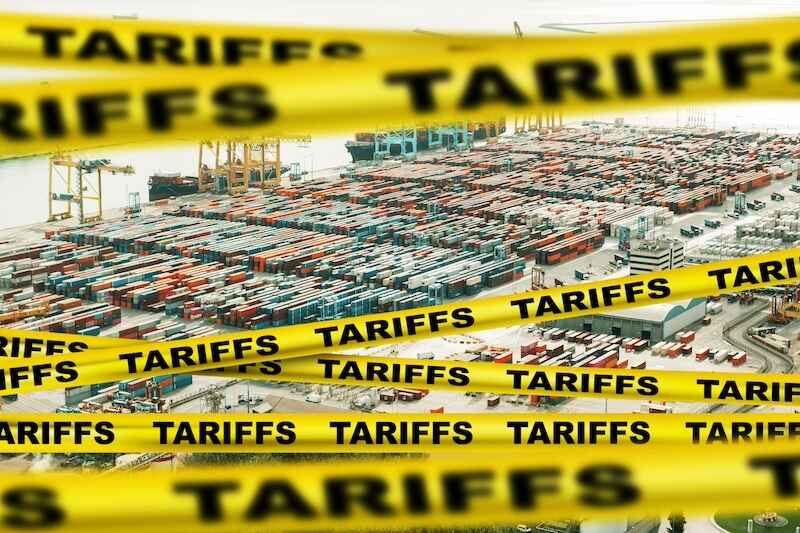Europe’s Canary in the Coal Mine is About to Croak
Shah Gilani|February 15, 2019
Deutsche Bank Aktiengesellschaft (NYSE:DB)’s “troubles” aren’t just a concern for the survival of Germany’s largest bank; they’re the same troubles most European banks face.
Frighteningly, those troubles collectively threaten the future of the European Union and, by extension, global markets.
That makes Deutsche Bank Europe’s canary in the coal mine.
Bond and equity markets better be listening to the chirping noise coming from Frankfurt, because it’s getting louder.
Let’s talk about what’s ailing Deutsche Bank and what DB tells us about other European banks. Then we’ll get into how the European Central Bank (ECB) is the common thread in their flawed knitting, and what could happen to bond and equity markets if the canary croaks.
And, later, I’ll show you a way you can make money no matter what the ever-evolving market conditions are…
May the Best Man Win
For more than 100 years, Deutsche Bank was the backbone lender and joint owner of stock and bond assets of Germany’s biggest industrial companies. It was, for the most part, industrial Germany’s financier and close friend.
But razor-thin profit margins and boring growth looked too old school when the big German lender looked at growing European and American counterparts in the 1980s.
By the mid-1990s, Deutsche Bank, salivating at the growth and profitability of earlier editions of JPMorgan Chase & Co. (NYSE:JPM), Merrill Lynch, and especially The Goldman Sachs Group Inc. (NYSE:GS), was in full-tilt expansion mode.
What stung DB most in 1996 was losing to Goldman Sachs as lead banker bringing Deutsche Telekom AG, Germany’s biggest company, public.
In short order, Deutsche Bank transformed itself from staid industrial lender to swashbuckling investment bank with a global footprint.
Bankers who flocked there in the 1990s and 2000s praised how creativity was pushed to the limit, how results were richly rewarded, and how ambition and risk-taking were encouraged.
Between the mid-1990s and mid-2000s, Deutsche Bank’s headcount was often increasing 20% per year and its assets growing close to 50% annually.
[URGENT] I need you to watch this now
By mid-2007, Deutsche Bank was the largest bank in the world, by assets, and boasted that it was the world’s biggest fixed-income house.
But underneath the breakneck speed of growth lay inadequate infrastructure, especially in technology but, more importantly, in risk measuring tools and compliance mechanics.
Managers, bankers, and traders at DB became so voraciously bonus-hungry and so bent on growth that regulatory relations were pushed to the limit.
“Deutsche always hired mercenaries into the investment bank,” recalled a former senior executive. “They didn’t care about ethics.”
According to a Financial Times exposé on Deutsche Bank, “Internal competition for the same client business was encouraged on a ‘may the best man win’ basis that could lead to toxic dynamics.'”
Eric Ben-Artzi, a Goldman Sachs mathematician who moved to Deutsche Bank in 2010, said of his former employer, “When I joined Deutsche I thought I was joining a winner, backed by a German notion of disciplined organization.” He went on to say, “Within months I was disillusioned.”
Ben-Artzi eventually became a whistleblower, informing regulators about the way Deutsche valued and risk-assessed its gigantic portfolio of arcane derivative securities $130 billion of so-called leveraged super-senior swaps.
“They were doing some interesting academic stuff in terms of risk modelling,” recounted Ben-Artzi. “But it was like a façade. The methodology that was actually implemented came out of thin air.”
The Flashing Yellow Warning Sign
Deutsche Bank wasn’t the only European bank playing hard and fast with risk models with derivatives accounting and over-the-top leverage. And it isn’t the only European bank to be fined huge sums for compliance and regulatory lapses, meaning criminal behavior.
The common thread that helped European banks grow recklessly, prior to the financial crisis, was excessive leverage fostered by artificially low interest rates – the same story as in the U.S.
What’s alarming now is borrowing has been even less expensive since 2008, thanks to the ECB.
Cheap money, courtesy of the ECB, allowed Deutsche Bank time to clean up its house, and it’s given the rest of Europe’s big banks time to de-lever and clean up their balance sheets.
But, Deutsche’s troubles are too intractable to be fixed by low borrowing costs, And the rest of Europe’s big banks used low rates to keep non-performing loans on their balance sheets instead of taking losses by selling them or writing them off completely.
In other words, the ECB’s allowed Deutsche Bank and the rest of Europe’s overleveraged and undercapitalized banks to keep on playing the extend and pretend game.
That’s why the ECB hasn’t raised rates.
It won’t because it can’t.
Because Europe’s banks can’t handle a rate increase as the Eurozone starts to slow down after only 18 months of above-trend growth, balance sheets won’t be cleaned up. Leverage won’t be reduced.
If Deutsche Bank must be bailed out, or if it’s merged with Commerzbank (another big over-leveraged, unprofitable German bank), the canary will be pronounced dead and dominos could start falling.
Most European banks burdened with non-performing loans, with profitability hampered by low interest rates, all of them facing persistent over-capacity, having overly exposed themselves to higher risks by expanding maturity transformation and loosening credit standards, face increasingly complex and demanding regulation to boot.
[CRUCIAL] Two trade targets locked and loaded ($100K+ potential each)
Overriding all these troubles, however, is the fact that all European banks face huge sovereign exposure, to each European Union member’s sovereign debt and collectively to the sovereign debt of the Union underwritten by the ECB, a central bank with no capital and increasingly fractious member-backers.
Because economic growth continues to depend on credit, and the ECB continues to feed that pipeline, while at the same time sovereigns continue to float debt that ECB printed money helps absorb, the tower of leverage and debt keeps growing.
If Deutsche Bank needs a rescue that alerts the world that Europe, the European Union, and the ECB itself, are in danger of choking on their own façade.
Any domino falling in a forest of avid listeners will be heard by global equity and bond markets.
That canary we hear is a flashing yellow warning sign – and it’s telling us to be on alert.
But that causes one big problem: where can you park your money in a stock market whose only consistent feature is inconsistency?
There’s huge risk involved. That was obvious years ago, which is why I developed something I’ve come to call a Master Algorithm.
Fancy name aside, the Master Algorithm could be the solution to a wildly volatile market – and here’s why:
Every week, using data I pull from the Master Algorithm , you could have the opportunity to make thousands of dollars from the stock market- all without investing in a single obscenely volatile stock.
Sounds like a real “pie in the sky” goal, I know, but when the markets are as insane as they have been, you have to look for new opportunities to make money. That’s why I spent eight long, expensive, grueling years back testing the Master Algorithm – which sharpened it to an unprecedented 93% accuracy rate.
So, if you hear that canary chirping (and you should by now), click here to learn how you can escape the coal mine – before it’s too late.
Sincerely,
![]()
Shah

Shah Gilani
Shah Gilani is the Chief Investment Strategist of Manward Press. Shah is a sought-after market commentator… a former hedge fund manager… and a veteran of the Chicago Board of Options Exchange. He ran the futures and options division at the largest retail bank in Britain… and called the implosion of U.S. financial markets (AND the mega bull run that followed). Now at the helm of Manward, Shah is focused tightly on one goal: To do his part to make subscribers wealthier, happier and more free.

